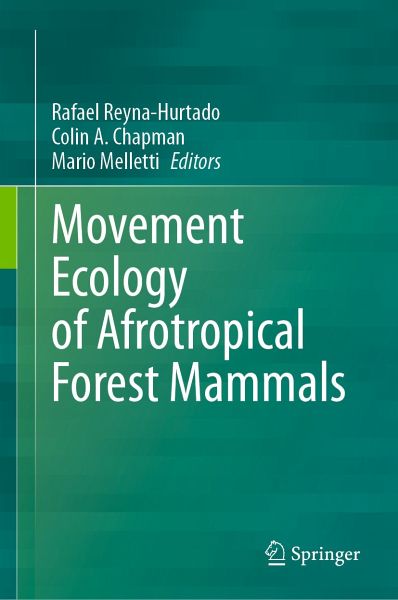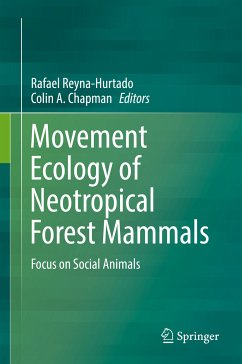
Movement Ecology of Afrotropical Forest Mammals (eBook, PDF)
Versandkostenfrei!
Sofort per Download lieferbar
136,95 €
inkl. MwSt.
Weitere Ausgaben:

PAYBACK Punkte
68 °P sammeln!
This book brings a unique perspective to animal movement studies because all studies come from African tropical environments where the great diversity, either biological and structurally (trees, shrubs, vines, epiphytes), present the animals with several options to fulfil their basic needs. These conditions have forced the evolution of unique movement patterns and ecological strategies. ¿The book follows on our previous book "Movement Ecology of Neotropical Forest Mammals" but focuses on tropical African forests. Movement is an essential process in the life of all organisms. Animals move beca...
This book brings a unique perspective to animal movement studies because all studies come from African tropical environments where the great diversity, either biological and structurally (trees, shrubs, vines, epiphytes), present the animals with several options to fulfil their basic needs. These conditions have forced the evolution of unique movement patterns and ecological strategies. ¿The book follows on our previous book "Movement Ecology of Neotropical Forest Mammals" but focuses on tropical African forests. Movement is an essential process in the life of all organisms. Animals move because they are looking for primary needs such as food, water, cover, mating and to avoid predators. Understanding the causes and consequences of animal movement is not an easy task for behavioural ecologists. Many animals are shy, move in secretive ways and are very sensible to human presence, therefore, studying the movements of mammals in tropical environments presents logistical and methodologicalchallenges. However, researchers have recently started to be solved these challenges and exciting new information is emerging. In this book we are compiling a set of extraordinary studies where researchers have used new technology and the strongest methodological approaches to understand movement patterns in wild African forest mammals. This second book should inspire early career researchers to investigate wild mammal¿s movements in some of the most amazing forest in the world: African tropical forests.
Dieser Download kann aus rechtlichen Gründen nur mit Rechnungsadresse in A, B, BG, CY, CZ, D, DK, EW, E, FIN, F, GR, HR, H, IRL, I, LT, L, LR, M, NL, PL, P, R, S, SLO, SK ausgeliefert werden.












